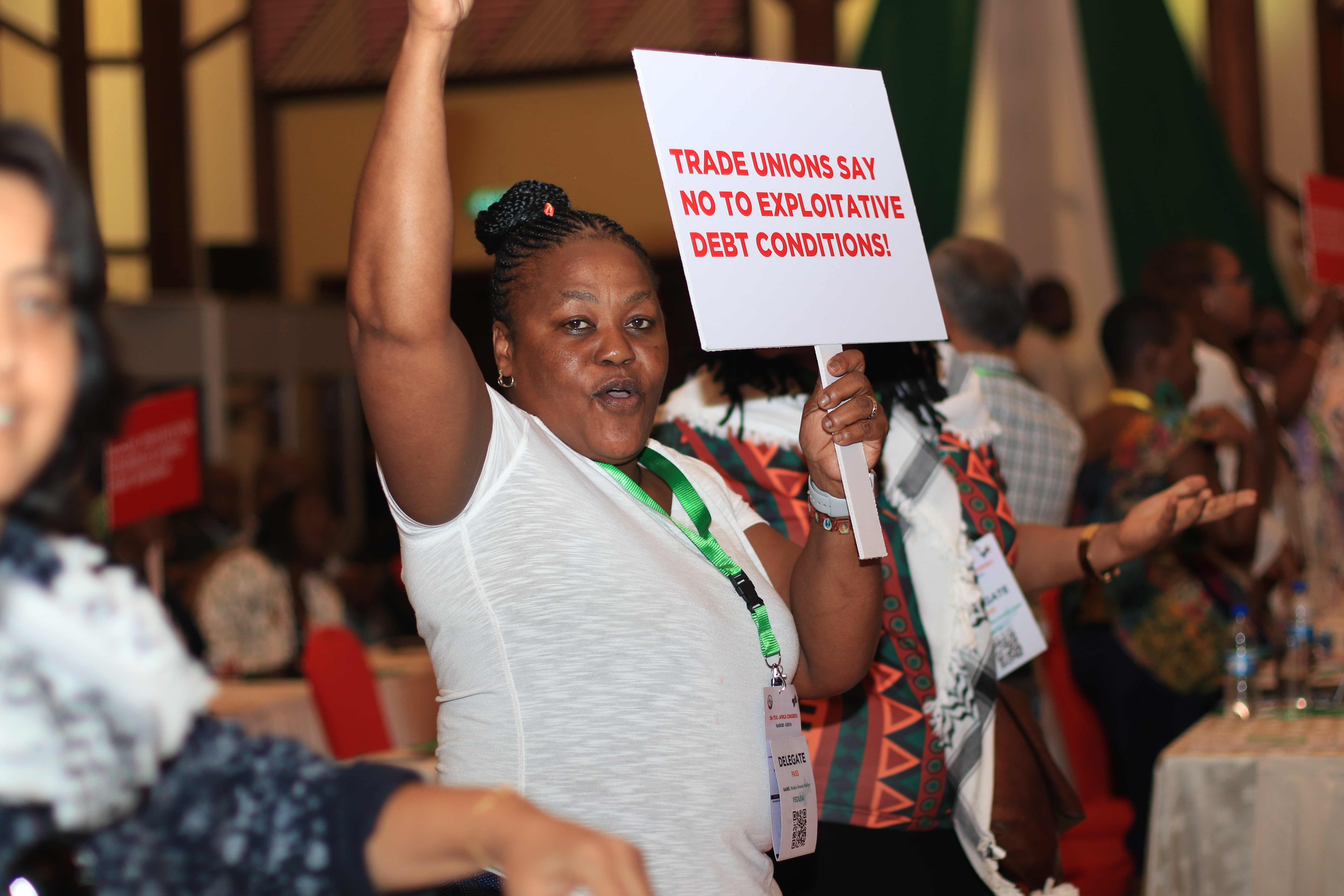
The African Regional Organization of the International Trade Union Confederation (ITUC-Africa), on Wednesday in Nairobi, the Kenya capital, launched a campaign to reverse Africa’s sovereign debt trend.
Under the campaign, ITUC-Africa says trade unions in Africa will begin to promote transparency and accountability in debt management by governments.
For too long, public debt has entangled African economies, ushering in pervasive macroeconomic instability and the Regional Organisation representing 17 million members across 52 African countries, says it is concerned with the escalating debt crisis engulfing the continent.
“The evolving debt landscape has led to worrisome trends — the composition of debt has shifted, crowding out private sector growth and imperiling other crucial societal investments. This dire situation exacerbates poverty, inequality, and inflation, disproportionately impacting workers, the vulnerable, and marginalized communities,” ITUC-Africa general secretary, Kwasi Adu-Amankwah told the media during the launch.
Despite the numerous attempts at restructuring Africa’s debt by the International Monetary Fund, World Bank and others, the crisis has continued unabated.
The ITUC-Africa said the time for action is now, saying it stands resolute in advocating for a sustainable way forward, safeguarding workers’ rights, ensuring equitable growth, and preserving Africa’s future.
Adu-Amankwah said, “As the African Regional Organization of the ITUC, we urge immediate action: Debt Transparency: Transparent debt management practices are imperative to prevent unsustainable debt levels; Inclusive Social Spending: Prioritize health and education spending, safeguarding citizens’ well-being amidst high debt service obligations.
“Public Accountability: Governments must engage citizens in financial decision-making, fostering transparency and accountability; Gender Equality: Implement gender-sensitive policies, addressing the disproportionate impact of debt on women in the workforce.”
On what Trade Unions do to reverse the trend, the general secretary said trade unions must actively participate in debt discussions in national parliaments as well as influence policy through advocacy by actively engaging in these discussions.
He said trade unions can promote transparency and accountability and debt management – Trade unions should actively push for transparency in debt negotiations, demanding accessible information on debt terms and the allocation of funds. Additionally, trade unions should advocate for the proper use of public money, including debt.
He said it will also build capacity and raise awareness for its members and the public about the implications of debt service on workers’rights and essential services.
He said further, “International Collaboration and Support – Collaborating with global trade unions and organizations to garner support and insights from similar experiences in other regions. This collective strength can exert international pressure on governments and financial institutions to prioritize workers’ rights and essential services in debt negotiations.
“Advocate for Innovative Debt Relief Programs – Trade Unions must advocate for negotiation strategies with creditors for favorable terms, repayment extensions, or debt restructuring. This alleviates the debt service burden, redirecting resources to vital services, thus safeguarding socio-economic well-being of workers.
“Monitoring and Reporting – Establishing mechanisms to monitor the impact of debt service on workers’ rights and the workforce in general. Trade unions can regularly report these findings to stakeholders, ensuring that the human impact of debt decisions remains a central focus in negotiations.”
